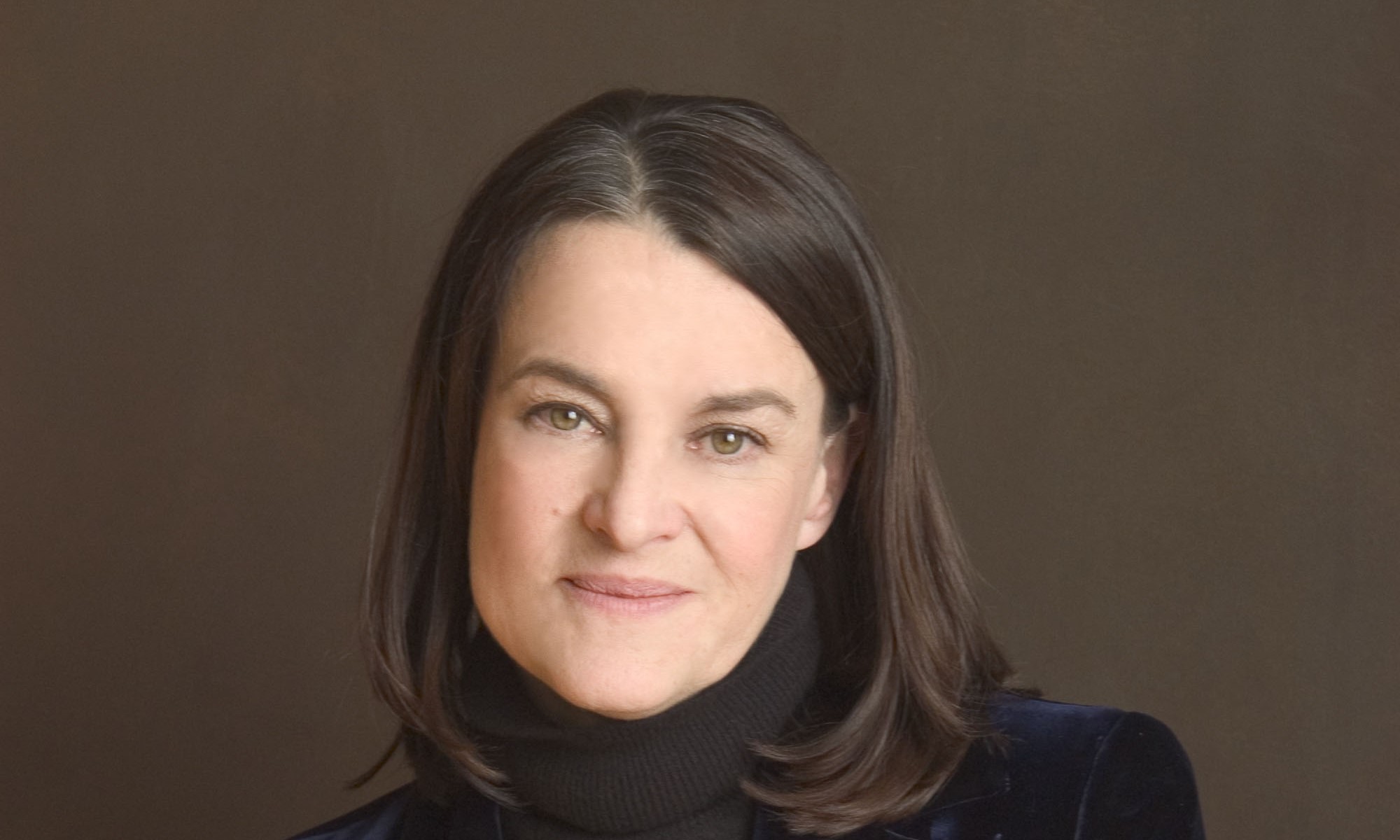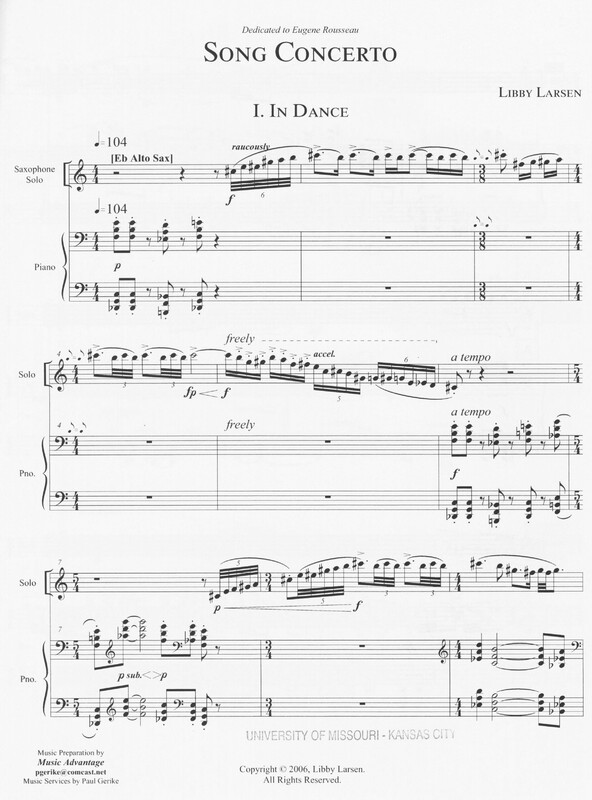Song Concerto
Item
-
Score title
-
Song Concerto
-
Composer
-
Libby Larsen
-
Program note
-
To hear a saxophone sing a gorgeous, heartfelt melody is to experience an unnamed and deeply essential echo of the human soul. This thought occurred to me over thirty years ago as I listened to Ruben Gonzales perform the premiere of Stanislaw Skrowaczewski’s Ricercari Notturni for saxophone and orchestra with the Minnesota Orchestra. It is from this sentiment that I composed my Song Concerto. I thought to combine two powerful musical forms, the song and the concerto, to create a vehicle for the extraordinary lyric power and quicksilver agility of the saxophone. The concerto is in four movements. Each of the four movements explores an aspect of song. Movement one, In Dance, gives the saxophone a rhythmic melody built from two themes. Both themes move about in a pulse driven, dance. Movement two, Cri de Coeur, is just this, a cry from the heart. Whose heart? The heart—our communal human heart. Movement three, Mozart’s Starling, a vignette, imagines the saxophone as Mozart, in his studio, conversing with his pet song-bird, a starling. If you listen carefully, you may hear themes from more well-known works by Mozart. And finally, movement four, Abandon, provides a framework of forward motion and texture upon which the saxophone’s rapid, athletic song gestures “ride”, neither reigned in by the framework nor tethered to it. Abandon is exhilaration, showcasing the “why” of the saxophone.
The first time I heard Eugene Rousseau perform, I thought to myself that if ever there was a musician completely at one with music, it was him. There seemed to be no performer, no instrument, no conductor, no stage, none of the layers we humans have devised which distance us from music itself. It was simply, purely, music. Music is so blindingly beautiful and completely generous that I wonder if what propels us musicians to study, practice, perform, and create it, is an intense loneliness in knowing that we are not music—yet born to make music, we to yearn to be it. I do not know the answer to that question. However, I do know that to hear Eugene Rousseau is very close to being music.
— Libby Larsen
 Libby Larsen
Libby Larsen

